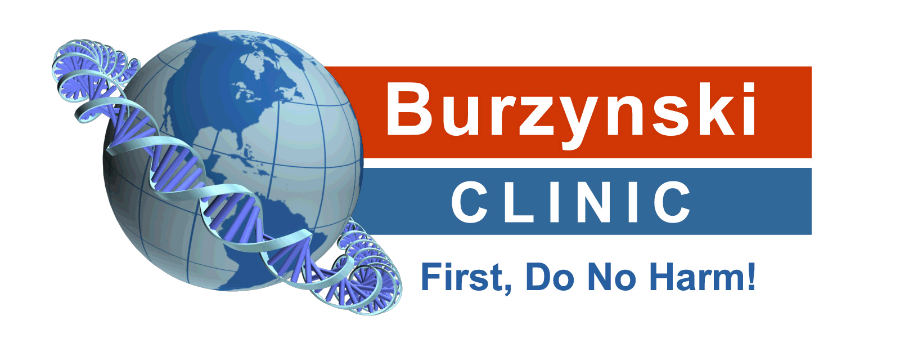Personalized Cancer Treatment Plans at Burzynski Clinic
Thursday, May 08, 2025 | By: Burzynski Clinic
In the realm of cancer treatment, the significance of personalized approaches cannot be overstated. Did you know that almost 70% of cancer patients can benefit from tailored therapies that directly target the underlying genetic mutations driving their illness? The Burzynski Clinic exemplifies this cutting-edge approach through its innovative use of oncogenes and personalized medication plans. In this comprehensive article, we will explore how understanding oncogenes can lead to more effective cancer therapies, the role of Antineoplaston Therapy, and how personalized cancer treatment plans are shaping the future of oncologic care. By gaining insights into these critical elements, readers can better understand the landscape of modern cancer treatment and advocate for personalized approaches in their own care journey.
Understanding Oncogenes and Their Role in Cancer
Oncogenes are mutated genes that have the potential to cause normal cells to become cancerous. Each type of cancer has its unique set of oncogenes, which drives the tumors' growth and spread. Knowing the specific oncogenes involved in a patient's cancer can provide crucial insights that inform treatment strategies.
Here, we will discuss the different classifications of oncogenes, how they contribute to cancer progression, and the latest research on targeting these genes.
What Are Oncogenes?
An oncogene is a gene that, when mutated or expressed at high levels, helps turn a normal cell into a tumor cell. Oncogenes can be classified into several categories based on their functions:
1. Growth Factors: These are signaling molecules that promote cell growth and division. When overexpressed, they can lead to uncontrolled cell proliferation.
2. Receptors: Oncogenes can also encode proteins that are receptors on cell surfaces, which may become dysfunctional, allowing cells to bypass normal growth controls.
3. Signal Transducers: These proteins relay signals from the outside of the cell to the nucleus—when mutated, they can continuously send growth-promoting signals even in the absence of growth factors.
4. Transcription Factors: These proteins bind to DNA and control the expression of other genes. Mutated transcription factors can lead to the promotion of cell proliferation and survival.
How Oncogenes Promote Cancer Development
In normal cells, oncogenes are typically kept in check through regulatory mechanisms. However, mutations can activate oncogenes, allowing swift tumor growth.
Examples of well-researched oncogenes include:
- HER2: Commonly associated with breast cancer, this gene leads to overproduction of a growth-promoting protein, facilitating aggressive tumor behavior.
- KRAS: Frequent in pancreatic cancer and lung cancer, mutations in KRAS drive cellular proliferation and survival.
- EGFR: Mutations in this receptor are implicated in non-small cell lung cancer.
Understanding the specific oncogenes involved in an individual's cancer can drastically improve treatment outcomes.
Personalized Cancer Treatment Plans
Once oncogenes are identified, they can guide the creation of personalized cancer treatment plans designed to target those specific genetic mutations.
The Science Behind Personalized Treatment Plans
The first step in creating an effective personalized cancer treatment plan involves comprehensive genomic profiling of the tumor. This profiling adheres to a multi-step process:
1. Biopsy & Sample Collection: Tumor samples are taken from the patient for genomic analysis. The patient’s medical history, along with the tumor’s genetic alterations, is analyzed.
2. Genomic Testing: The next phase involves sequencing technologies to identify active oncogenes and other mutations associated with cancer progression.
3. Data Interpretation: Highly specialized teams interpret the genetic data, determining which medications may be most effective in targeting the identified oncogenes.
By focusing on the unique genetic fingerprints of tumors, oncologists can select treatments that target specific mutations, rather than using a one-size-fits-all approach.
Personalized treatment plans may include:
- Chemotherapy agents specifically chosen for efficacy against activating oncogenic pathways.
- Targeted therapies that focus on inhibiting the action of specific mutated proteins involved in cancer growth.
- Immunotherapies that enhance the body’s natural ability to fight cancer.
Personalized cancer treatment not only improves effectiveness but also reduces the risk of adverse effects, as therapies are tailored to the individual’s unique cancer profile.
The Burzynski Clinic Approach to Personalized Medicine
One of the most significant contributions from the Burzynski Clinic in the realm of cancer treatment is the introduction of Antineoplaston Therapy, a proprietary treatment developed by Dr. Stanislaw Burzynski. This innovative approach employs natural compounds derived from the human body to target cancer cells.
Breaking Down Antineoplaston Therapy
Antineoplastons are unique molecules composed of peptides and amino acid derivatives intended to inhibit cancer cell growth while promoting the body’s natural immune response. They work by influencing gene expression, effectively 'turning off' the genes that contribute to cancer progression.
1. Mechanism of Action: Antineoplastons act to restore the balance of normal tissue and alter cellular signaling pathways that could otherwise lead to unchecked proliferation.
2. Types of Antineoplastons: Commonly used antineoplastons include A10 and AS2-1, with studies indicating their efficacy against various tumor types.
3. Clinical Trials and Evidence: Ongoing clinical trials at the Burzynski Clinic continue to explore the safety and effectiveness of antineoplastons. Patients participating in these trials gain access to unique and potentially life-saving treatments that are not widely available elsewhere.
Holistic Support Services at Burzynski Clinic
The care model at the Burzynski Clinic prioritizes holistic patient welfare, incorporating various aspects of treatment beyond just medication. The clinic offers:
- Nutritional counseling to support patients during their treatment journey.
- Psychological support to help individuals navigate the emotional challenges that come with a cancer diagnosis.
- 24-hour patient monitoring to ensure immediate attention to any necessary adjustments in care.
By fostering a nurturing environment, the Burzynski Clinic stands out as a leader in concierge-level oncologic care, enhancing overall treatment experiences as they support patients in their fight against cancer.

